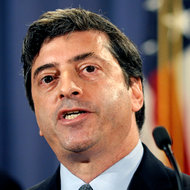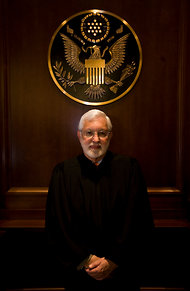The jury cleared Goldman of claims of negligence, intentional misrepresentation and breach of fiduciary duty and other claims in the civil case, according to the verdict, announced in Federal District Court in Boston.
Dragon’s founders, Jim and Janet Baker, pioneers in speech recognition software, accused Goldman investment bankers of being negligent in the 2000 sale of their company to Lernout Hauspie of Belgium, which collapsed in a huge accounting fraud. The Bakers and two early Dragon employees sought several hundred million dollars in damages.
“We are pleased the jury rejected these claims. We fulfilled all our advisory duties to Dragon Systems,” a Goldman spokeswoman, Tiffany Galvin, said.
John Donovan, Goldman’s lead lawyer on the case, declined to comment.
The Bakers were not available for comment. Before the verdict was read, the couple sat closely together, as they had throughout the 23-day trial.
Their lawyers portrayed Goldman’s investment bankers as a “bottom of the barrel” team that failed to properly vet concerns about Lernout Hauspie’s claims of soaring sales in Asia.
But lawyers for Goldman said it was not the investment bank’s job to figure out the accounting fraud that ultimately doomed Lernout Hauspie and made the remaining stock held by the Bakers worthless. In fact, Goldman said Dragon rushed into the sale and brushed aside advice to hire outside accountants to examine Lernout Hauspie’s books in more detail.
The Bakers owned 51 percent of the company, but were able to sell only a few million dollars’ worth of the Lernout Hauspie shares they received in the all-stock deal before the company collapsed.
Article source: http://www.nytimes.com/2013/01/24/business/goldman-sachs-cleared-in-collapse-of-dragon-systems-sale.html?partner=rss&emc=rss

